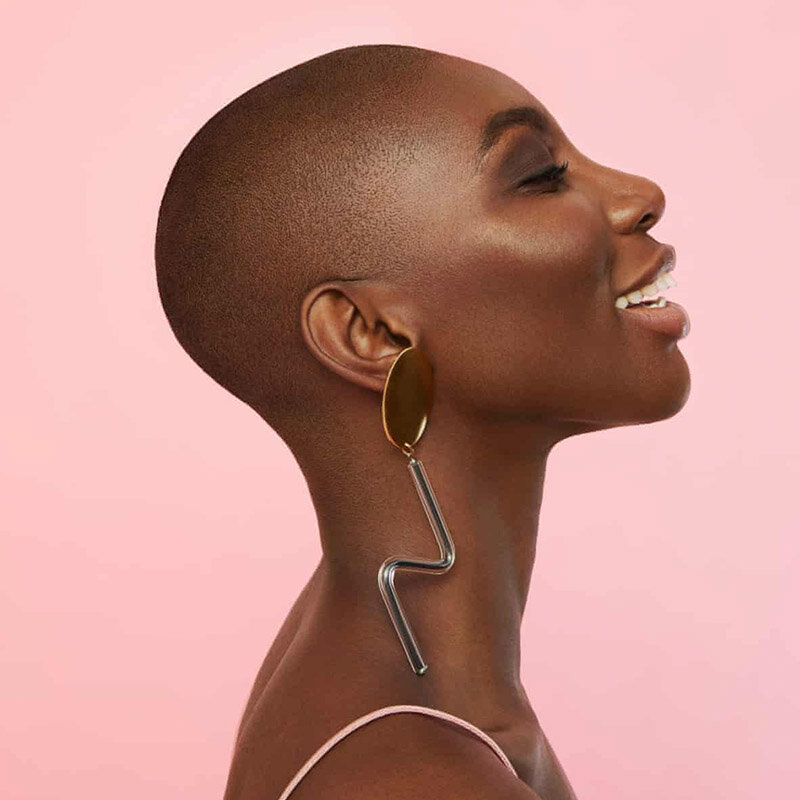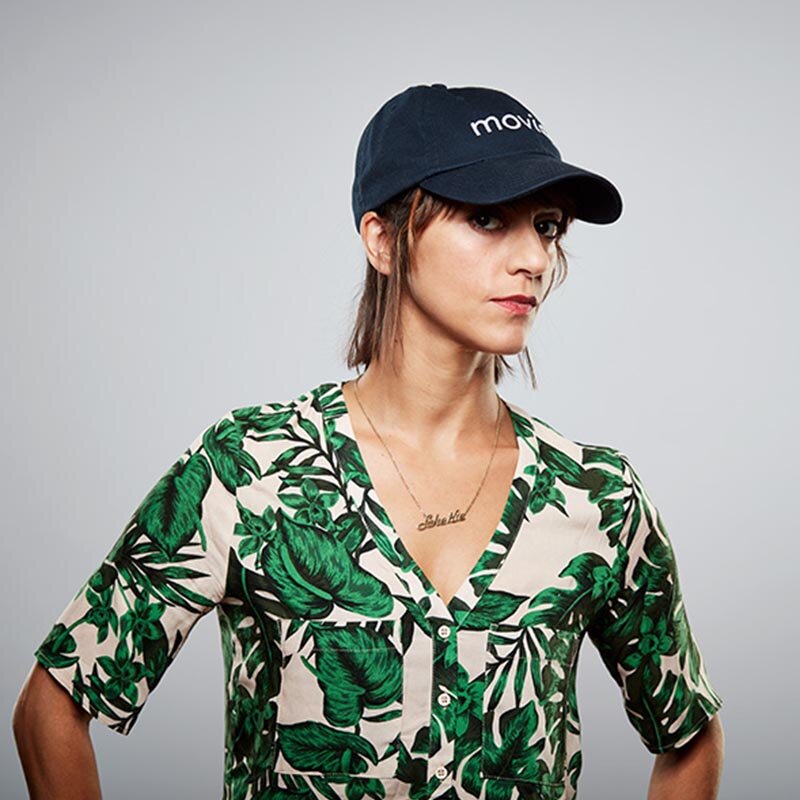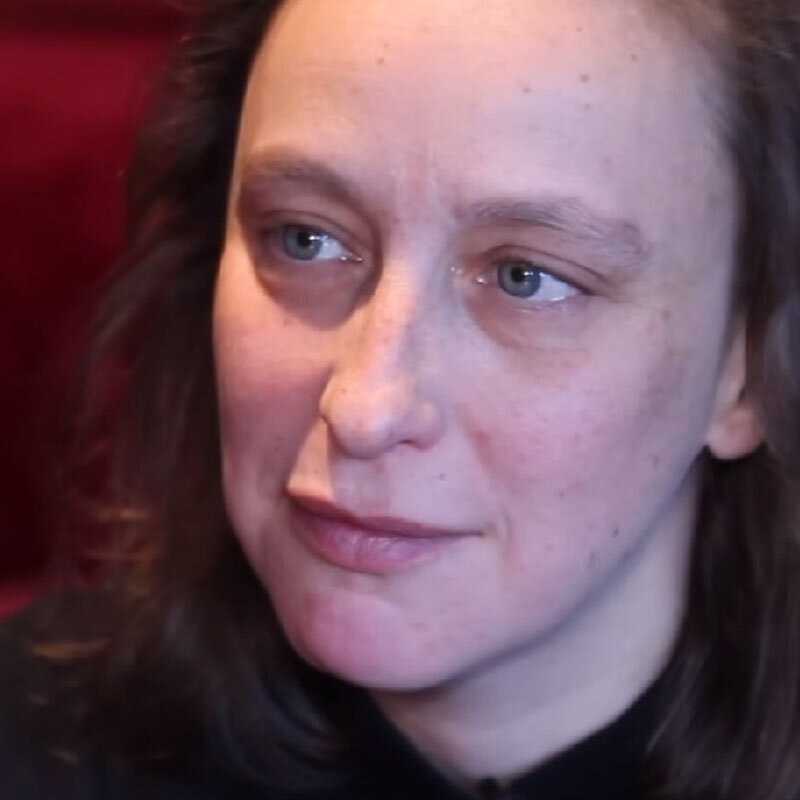15 Fantastic Female Filmmakers of the Future
the author does not own copyright to the images
In this tumultuous time of pandemic and dissent, when male leadership has collapsed spectacularly, (Trump, Bolsanaro, Putin), women have proven their ability to navigate national crisis and terror far more successfully (Ardern, Merkel, Ing-wen). It’s time to bring female storytellers to the forefront to change the global narrative of doom and gloom.
I watched Shyam Benegal and Satyajit Ray films alongside “A Clockwork Orange,” “Amarcord,” and “The Last Tango in Paris,” as a teenager, thanks to my father’s sophisticated taste. Back then, too, the industry was dominated by men, but times have changed, and I often wonder why most film projects originating from the U.S.A. are written or directed (or both) by men. Specifically, white men who went to Dartmouth, Duke, and Bennington, etc. Why is the industry not rushing to sign the many talented and wide-ranging women filmmakers from around the world?
Things are changing, but not fast enough, in my opinion. If we placed bigger bets on women artists, and those from far-flung cultures we don’t understand, a kaleidoscope of new perspectives and a very different vision of the world would emerge. We could use an overdose of modern Jane Campions, Maya Derens, Mira Nairs, and Lisa Cholodenkos. We need the balm of compassion, the elegance of nuance, and the shock of the new an abundance of female auteurs would inevitably bring.
My favorite films from "Madly", an anthology of shorts about conflicted love which I created and executive produced, were directed by women or had strong female protagonists. (Mia Wasikowska’s “Afterbirth” and Natasha Khan’s “I Do” are unusual takes on childbirth and paternal love respectively.) Indian actress, Radhika Apte, who played the lead role in "Clean Shaven", directed by Anurag Kashyap, won the best actress award in the International category at the Tribeca Film Festival.
Here’s a whimsical, wildly incomplete sampling of female filmmakers from around the world whose work I have recently immersed myself in. Some are relatively unknown. Others, like Dee Rees and Gina Prince-Bythewood, are already making big movies or about to crossover from television to film.
They are all fantastic, and it will inspire you to experience their finely crafted films, many of which present a sharply different examination of the world than we get to see from their male counterparts:
1. MICHAELA COEL (U.K.) is a British actress, screenwriter, director, producer, singer, songwriter, poet, and playwright, famous for her sitcom “Chewing Gum.” I saw her in “Black Earth Rising” and a couple of “Black Mirror” episodes, which are all great. But she comes into her own “I May Destroy You,” the exhilarating and devastatingly fresh BBC/HBO series about sexual assault she wrote and directed.
2. ANAHITA GHAZVINIZADEH (Iran) Mentored by masters Jane Campion and Abbas Kiarostami, she won accolades for her short film “Needle.” Her poignant first feature film “They,” about a transitioning young cis male premiered at the Cannes Film Festival in 2017 to numerous accolades and some critique for being “airless and artificial.” I think her subtle and poetic film is a harbinger of bigger things.
3. CHLOE ZHAO (China) is a screenwriter, director, and producer known for her American films. Her debut feature film “Songs My Brothers Taught Me” (2015) premiered at Sundance, and the more recent “The Rider” (2017) got a nomination for best director at the Independent Spirit Awards. Chloe could build bridges with her deep understanding of both Chinese and American culture.
4. SABAAH FOLAYAN (U.S.A.): “Whose Streets?” her compelling documentary about Michael Brown and the Ferguson uprising is surprisingly underappreciated. Sabaah’s experiences of systemic racism and poverty growing up in South Central LA with a single mother lend immediacy and sensitivity to the film. Can’t wait for her next.
5. ANA LILY AMIRPOUR (U.S.A./Iran): I was blown away by Ana Lily’s first feature, “A Girl Walks Alone at Night,” “the first Iranian vampire spaghetti western” shot in L.A. in stark black and white. It’s a unique vision that only a cultural hybrid could summon. I tried to get her to make a short for my “Madly” anthology, but she was already busy with her second film, “The Bad Batch.” Ana Lily’s hyper-stylized approach, a cocktail of genres and cultures, is a gothic mirror to the scrambled world we inhabit.
6. ALMA HAREL (Israel): A champion of diversity in film making, Alma’s gorgeous, stream-of-consciousness documentary “Bombay Beach” about the offbeat inhabitants of the eponymous little village, drew me to photograph the strange lives of people living around the toxic Salton Sea. Her more recent narrative feature, “Honey Boy,” provides a glimpse of her ambitious ideas.
7. HETTIE MCDONALD (U.K.): Anyone who has seen the lyrical, bittersweet 12-episodes series “Normal People” on Hulu will understand why she is on this list- Hettie helmed several episodes of it. A veteran director of theatre, film, and television productions has the lightness of touch, which renders a golden hue to her stories. Her sensitive and understated handling of “Normal People” is an excellent example of a female director elevating a project (about young love) that might have turned out banal in rougher hands. Previously she won a People’s Choice Award for the film “Beautiful People.”
8. GINA PRINCE-BYTHEWOOD (U.S.A.): She has numerous television and short film projects to her credit. Still, her directorial debut and first feature, “Love and Basketball” is a cult classic based on her experiences growing up in California. Her most recent film, “The Old Guard,” starring Charlize Theron premiered recently on Netflix to great reviews and is exhilarating to watch, especially for its poetic action sequences and breathless pacing.
9. CATE SHORTLAND (Australia): I remembered being struck by her debut “Somersault” years ago. In this coming-of-age story a beautiful, troubled young girl, estranged from her mother, seeks refuge in love and sex. Since then, Cate has directed many T.V. series and films. Her next big project, “Black Widow,” starring Scarlett Johansson, is to be released soon and hopefully make her an A list director.
10. CELINE SCIAMMA (France): has directed 13 films, including the sublime “Girlhood” (2014), many of which deal with gender and sexuality, themes that men sometimes fumble. Her latest, “Portrait of a Lady on Fire” (2019), the story of a forbidden affair between an aristocrat and a painter commissioned to paint her portrait has won numerous awards and nominated for Golden Globe for Best Foreign Language Film.
11. HAIFA AL MANSOUR (Saudi Arabia): It is critically important that women’s voices articulate their experience in the Arab world. Haifa is the first female director to emerge from Saudi Arabia. Her lyrical debut feature, “Wadjda,” which she wrote and directed, is the story of a 10-year-old girl growing up in Riyadh who dreams of owning a green bicycle. Haifa deploys metaphor, subtlety, and nuance in her stories to protest oppression and injustice, and walks a fine line. “Wadjda” was nominated for a Foreign Language film Oscar. Since then, she has directed several high-profile features, including “Mary Shelley,” “Nappily Ever After,” and most recently, “The Perfect Candidate.” Haifa has courageously withstood controversy and hate because of her focus on women’s issues like mandatory wearing of the “abaya” (veil) in Muslim countries, forcing a discussion about the repressive Saudi Arabian culture inside which she grew up.
12. DEE REES (U.S.A.): Spike Lee has taught and mentored her, and she already has a documentary (“Eventual Salvation”), four feature films, and several T.V. shows to her credit. “Pariah,” about a young person of color coming to terms with their sexuality and “Bessie,” the Bessie Smith biopic starring Queen Latifah are both critically acclaimed, and the latter won a Primetime Emmy Award for Outstanding Television Movie for HBO. “Mudbound,” based on the novel of the same name by Hillary Jordan, which Dee wrote and directed, is a slow-burning meditation on racism in the deep south, infused with the experiences of Dee’s grandmother, whose notebooks she used as guidance.
13. DENIZ GAMZE ERGUVEN: (TURKEY)- her director debut “Mustang” (2015), which she co-wrote with Alice Winocour, received a Best Foreign Language Film Oscar nomination, and won Best Original Screenplay at Cannes. The widely acclaimed film is set in a remote Turkish village and tracks the lives of five orphaned young sisters and the hardships they face growing up in a conservative society. The Daily Telegraph gave it four stars and said it was “fierce, confident and urgent.” While “Mustang” has been compared to “The Virgin Suicides,” it’s more akin to Iran’s underground theatre and poetry, in which artists critique their repressive governments and culture through insinuation, metaphor, and parable. Deniz is an original and bold new voice who shouldn’t be wrongly categorized as a Turkish or “world” cinema director because “Mustang” is a universal story that could have taken place in rural U.S.A. or India.
14. MIA HANSEN LOVE: (France): This accomplished director won the Louis Delluc Award for Best First Film in 2007 for “All Is Forgiven,” I have been following her work since. Her second film,” Father of My Children,” was inspired by the suicide of Humbert Balsan, a French actor and film producer who served as an early mentor for Hansen-Løve and won the Special Jury Prize at Cannes. But it was her third, and in my opinion, the most underrated film “Goodbye First Love”- a bittersweet and tender meditation on first love that made me a huge fan. Since then, “Eden” and “Things to Come” have won critical acclaim, and the latter earned her a Silver Bear for Best Director at Berlinale in 2016.
15. KELLY REICHARDT: (U.S.A.) Her subtle, minimalist approach to cinema and focus on salt-of-the-earth characters in rural America have inspired me, especially in “Certain Women” set in Montana, which she wrote and directed and her meditative debut “River of Grass” filmed in Oregon. Her most recent work, the western masterpiece “First Cow,” had critics raving and the New York Times’ ecstatic review of the film by A.OA.O. Scott is an excellent piece of writing.
















